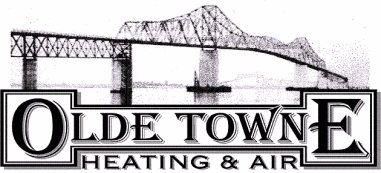
If you’re uncertain whether your Mount Pleasant home has bad indoor air quality (IAQ), it possibly does.
We are indoors a lot. In reality, we’re indoors up to 90% of the time, according to the U.S. Environmental Protection Agency. And the air inside houses could be 2–5 times worse than outdoors, which can create long-term health concerns.
Most Common Causes of Bad IAQ
We’ve made a list of the most ordinary sources of inferior IAQ, the problems they make and how you can remedy these indoor air pollutants. If you’re worried about the air inside your residence, we advise talking with a specialist like Olde Towne Heating & Air about which solutions are best for your home.
Volatile Organic Compounds
Volatile organic compounds, or VOCs, are vapors released by regular household items.
They’re found in paint and stains as well as:
- Furniture
- Carpet
- Building materials
- Cleaning products
- Cosmetics
- Air fresheners
- Candles
When these fumes accumulate in your home, they can irritate your eyes, nose and throat. They can also create headaches and nausea. Regardless of whether your house is in a rural or industrial space, an EPA study found indoor levels of these chemicals can be 2–5 times higher than the air outdoors.
Always adhere to the manufacturer’s guidelines when using paint or cleaning supplies. Unlatching a window can help odors disperse faster.
Air purification systems can also help. This system partners with your heating and cooling unit to freshen indoor air. When seeking a model, ensure it’s specifically created to wipe out VOCs.
Dust and Pet Dander
Dust and pet dander can trigger health problems like asthma and allergies, especially when it constantly gets redistributed by your house’s comfort equipment. While you can vacuum more regularly and buy an improved air filter, an air filtration system could be a better fit.
This solution hooks to your comfort equipment to give mighty filtration. Some kinds have hospital-level filtration for getting rid of particles and bioaerosols.
Persistent Odors
Modern houses are tightly sealed to increase energy efficiency. While this is great for your utility costs, it’s not very good for your IAQ.
Stuffy odors can stay around for a greater amount of time since your home is pulling in reduced fresh air. Since keeping your windows open all the time isn’t an option, here are two ways you can make your indoor air smell fresher.
An air purification system is installed in your ducts to neutralize odors before they recirculate. Look for one with a carbon filter and the power to eliminate harmful VOCs. This equipment can also help keep your loved ones healthy by wiping out most bacteria and normal allergy triggers like pollen and mold spores.
A ventilation system takes out stuffy indoor air and replaces it with fresh outdoor air. There are two types of units (heat recovery and energy recovery), so call our professionals for more info on which type is best for your home.
Uneven Humidity
It’s important your home’s humidity stays even. Air that has too much moisture can cause mold, while dry air can cause respiratory symptoms.
Our professionals suggest 40–50% for ideal comfort. To keep yours steady, consider getting a whole-home humidifier or whole-home dehumidifier with your heating and cooling unit.
Rather than having to pull a humidifier from room to room, this equipment delivers consistent humidity across your house.
Carbon Monoxide
Carbon monoxide is colorless gas you can’t smell. It’s a byproduct of insufficient combustion in fuel-burning appliances, like gas heating systems, water heaters or fireplaces.
It presents a severe health risk. In little levels, it can create flu-like symptoms like headaches and nausea. It can be lethal in big concentrations.
We recommend annual furnace maintenance to double-check your system is running smoothly. This work allows our technicians to pinpoint issues before they get bigger, including malfunctions that can lead to carbon monoxide leaks.
The best approach to keep your house free of carbon monoxide is to put in detectors. These alarms must be on each floor near bedrooms and living spaces.
Enhance Your Home’s Air Quality with the Olde Towne Heating & Air Professionals
Know that your home has bad air quality but not sure how to enhance it? Or unsure which solution is a good fit for you? Give our kind HVAC professionals a call at 843-806-2049 or contact us online today. With free estimates and professional assistance, we’ll help you locate the best equipment for your needs and budget.
